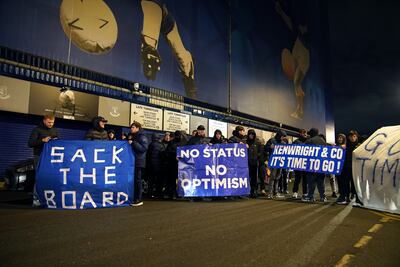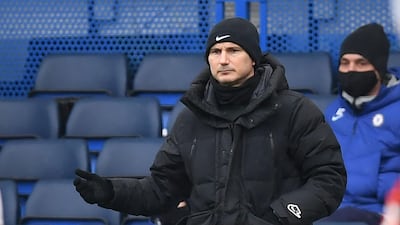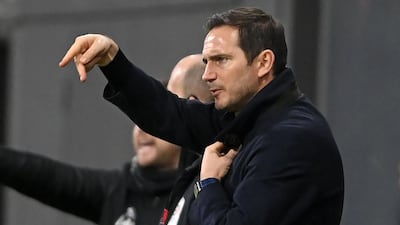It has proved the most influential piece of graffiti in the Premier League. Whoever daubed “Pereira out Lampard in” on the walls of Goodison Park this week will get their wish. As Everton have rearranged their shortlist to replace Rafa Benitez, Vitor Pereira has dropped out of top spot. Frank Lampard has moved in.
Everton are getting a manager who, unlike Pereira, is not indelibly associated with Kia Joorabchian, which is essential. Lampard’s eloquence has served him well in their interviews. His magnificent playing career and status as a former Chelsea manager should satisfy owner Farhad Moshiri’s fondness for big names. But there can be no pretence either that Lampard was originally Everton’s first choice or that this is his dream job: that was his last post.
Had Pereira not torpedoed his own candidature, perhaps Lampard’s exile from the game would have continued. He was probably wise to pull out of the running for the Norwich City job in November. Yet missing out on Crystal Palace last summer, to another former talismanic former midfielder, in Patrick Vieira, highlighted questions about how good a man fast-tracked to Stamford Bridge is and where Lampard may return.
He arrives with a slender track record that feels divisive. Thomas Tuchel’s brilliance with the Chelsea players he had left in ninth may have served as an indictment of Lampard: when the German won the Champions League with the same personnel, a different system and a dramatically superior defensive record, the comparisons did not flatter Lampard. Antonio Rudiger was sometimes his fourth-choice centre-back and became one of Europe’s best under Tuchel. Jorginho went from being dropped to a podium finisher in the Ballon d’Or.
A broader reflection of Lampard’s 18 months at Chelsea should show he did much right, whether in steering them into the top four despite a transfer ban, signing Ben Chilwell, Thiago Silva and Edouard Mendy, going against the club’s Abramovich-era history by trusting in youth. In Reece James and Mason Mount, Tuchel benefited from his legacy. A disastrous final seven weeks took Lampard from the top of the league to the text from Bruce Buck that made him realise he was being sacked.

His solitary season at Derby County also ranks as a qualified success. Derby’s financial and footballing problems spiralled after his departure, but he ended with a transfer-market profit and a play-off final appearance, in part because of his loanees in Harry Wilson, Fikayo Tomori and Mount. Everton represents a third challenging, and very different, job for a manager whose two previous tasks have been to overhaul more favoured candidates at the top. Arguably, his only real relegation battle was with West Ham as a teenager in 1996/97.
Now Everton, with six points from 13 games, are in danger of going down for the first time in 71 years. Like his Chelsea in his debut campaign, they have a habit of conceding from set-pieces. Lampard has shown he will not shirk a challenge. On and off the field, Everton provides one. This week has provided ample images of a club at war with itself; Benitez, whose Chelsea team he captained to victory in the 2013 Europa League, was never likely to heal the divides. More immediately, the news that Abdoulaye Doucoure is out for four weeks suggested that, if injury-hit Everton could find a way to rewind time, they could have done with recruiting Lampard the midfielder.
Part of the appeal of Lampard lies in a relentless career-long commitment to self-improvement. He had less talent than Steven Gerrard and Paul Scholes but ended up outscoring both. If Lampard the manager represents a work in progress, his initial aim will be to prevent Everton from regressing to the Championship.












